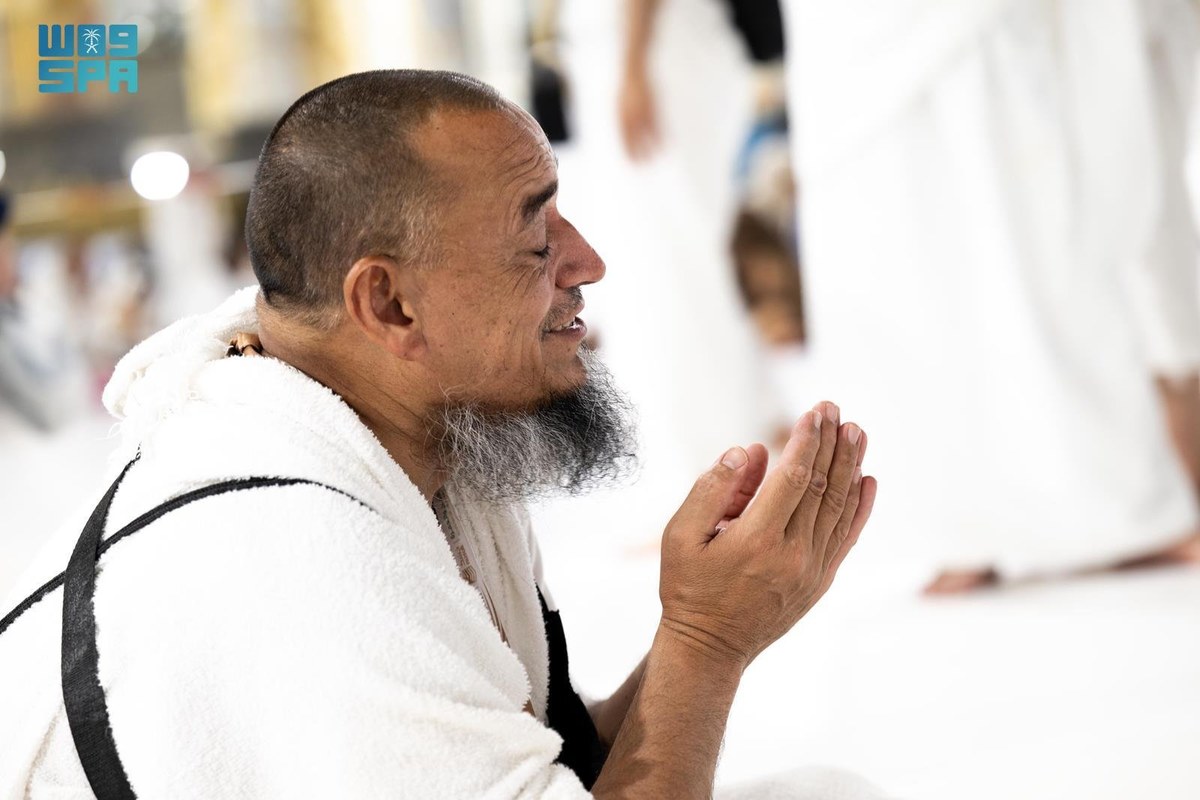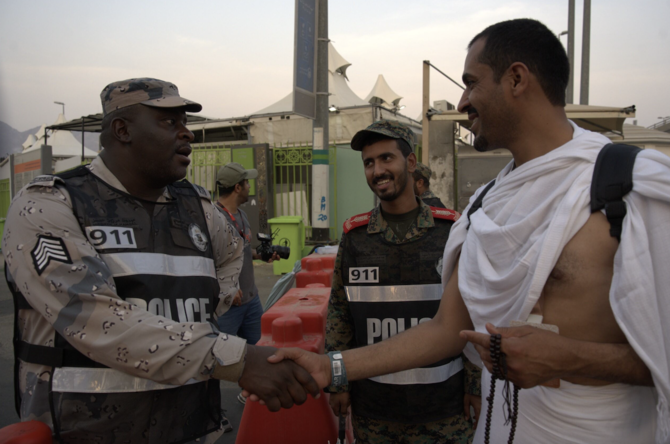MINA: More than 2 million pilgrims from around the world spent Tarwiyah Day in Mina on Friday as they prepare for the most important day of Hajj.
The pilgrims followed in the footsteps of Prophet Mohammed as they made their final preparations for Waqfah at Arafat, the pinnacle of the annual pilgrimage, on Saturday.
Efficient traffic and security planning by the relevant authorities allowed the worshippers to make smooth progress, the Saudi Press Agency reported.
The Ministry of Health has mobilized more than 34,000 physicians, nurses, pharmacists and administrative staff to ensure the well-being of the pilgrims. There are also 730 ambulances and seven air ambulances available to provide medical assistance and transport people to any one of the 189 dedicated hospitals, medical centers and mobile clinics.
The ministry said that since June 7, its medical centers had performed 180 heart operations on pilgrims and that more than 470 worshippers had undergone dialysis.
As of Tuesday, more than 70,000 pilgrims had benefited from medical services provided by the ministry, it said.
With the temperature rising to 43 degrees Celsius in some areas, the ministry urged all pilgrims to use umbrellas to protect themselves from the heat of the sun and drink plenty of water.
Meanwhile, Lt. Gen. Fayyadh bin Hamed Al-Ruwaili said the Kingdom’s armed forces were playing a key role in keeping visitors safe. He recently made an inspection tour of those units involved in this year’s Hajj to ensure their readiness to serve.
Speaking on social media, Minister of Hajj and Umrah Tawfiq Al-Rabiah said: “With the holy sites fully prepared, we extend a warm welcome to all pilgrims embarking on their Hajj journey.”
He also announced the introduction of the Nusuk Card, which helps to identify authorized pilgrims by providing their personal details and information about their accommodation at the holy sites. Carrying the card is mandatory for all visitors throughout the Hajj period.
The Ministry of Municipal and Rural Affairs and Housing is also helping to ensure this year’s pilgrimage goes well by providing 22,000 workers and 88,000 waste containers at the holy sites.

Pilgrims started Hajj by praying Fajr in the Grand Mosque in Makkah. (SPA)
Mohammad Asim Khan is a software engineer from India whose childhood wish was to come to Hajj and perform the religious rituals.
“It’s a very amazing experience. All the atmosphere and everything, all the arrangements are very good here. I am really liking it … The kind of arrangement that Saudi people are doing here, and the volunteers are helping each other. Everybody is doing great work here.”
Youssef Bendib, a pilgrim from Morocco, is performing Hajj for the first time and is preparing for Arafat, which is described as the pinnacle for Hajj and Muslims around the world. It reflect the actions of pilgrims by asking for forgiveness and praying for their deepest wishes.
“This is my first time, and this is really something amazing. And this is something that we cannot even explain by words. So, we are here with our guest of Allah … This is really something that I would like every Muslim to do in at least one thing in their life.”
Faisal Jariwala, a pilgrim from India, is also performing Hajj for the first time. He highlights the Kingdom’s initiatives to stay cool during the high temperatures of the Hajj season.
“It’s a very good feeling because it’s a very important pilgrimage for Muslims … The management is very good. Despite the temperature outside, although it’s 45 to 46 degrees Celsius, inside here we don’t feel it.”
































